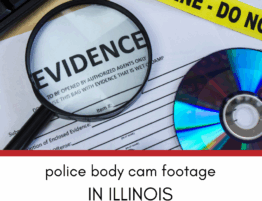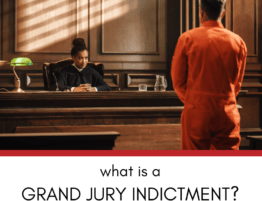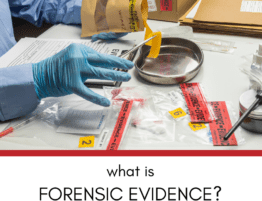

In today’s digital world, almost every question, curiosity or impulse gets typed into a search bar. From recipes to medical advice to directions, Google has become an extension of human memory. But what happens when those searches show up in a courtroom? In Illinois, prosecutors increasingly look to Google search history as evidence in criminal trials. That raises difficult questions about privacy, intent and the boundaries of criminal law.
This deep dive explains how Google search data can be used in Illinois courtrooms, when it is most likely to appear in criminal cases, the constitutional rights at play, and how expungement can help protect against lingering digital data after an arrest.
How Google Search History Becomes Evidence
Google stores vast amounts of data, including search terms, websites visited and sometimes location history linked to a Google account. Law enforcement agencies can request this data with a search warrant. Once investigators have access, they may attempt to link the timing and content of searches to alleged criminal activity.
For example, if a person is accused of arson and investigators find that the defendant searched “how to make homemade explosives” days before the fire, prosecutors may argue the searches show planning or intent. Similarly, in drug cases, searches for “how to hide cocaine in a car” could be presented as evidence of knowledge.
Illinois courts allow prosecutors to introduce digital search history if it meets evidentiary standards. That means the information must be relevant to the case, obtained legally, and not unfairly prejudicial compared to its value. Defense lawyers often challenge these points, arguing that searches are too broad, too speculative or misinterpreted.
The Legal Framework: Fourth Amendment and Illinois Law
The U.S. Constitution’s Fourth Amendment protects against unreasonable searches and seizures. In Illinois, courts apply those protections to digital data. Police usually need a warrant supported by probable cause to access someone’s Google history. A warrant must be specific about what information is sought, and judges review requests before granting them.
Without a warrant, police cannot simply comb through your search history. If they do, defense lawyers can move to suppress the evidence, arguing it was obtained illegally. That said, once a warrant is issued, Google is required to turn over the data it stores. Because much of that information is tied to Google accounts rather than a single device, the scope can be broader than people expect.
When Search History Plays a Role in Illinois Cases
Search history appears in a variety of Illinois cases:
Homicide and Violent Crime
Prosecutors may look for searches about weapons, poisons or disposal methods. They argue that timing of searches demonstrates premeditation.
Arson and Property Crimes
Searches for accelerants, explosives or lockpicking can be cited as evidence of planning.
Drug Offenses
Queries about manufacturing, concealing or distributing drugs may surface in court.
Internet and Cybercrimes
In cases involving fraud, stalking or harassment, searches can show how a defendant allegedly learned techniques or found victims.
Sexual Offenses
Search history sometimes appears in cases where prosecutors argue searches show motive, preference or planning. These uses are controversial and often hotly contested in Illinois courts.
The Challenges of Using Google Searches as Proof
While search history can look damaging, it is not always reliable evidence. Defense attorneys raise several concerns:
-
Ambiguity of intent. Searching “how to make a bomb” might be idle curiosity, research for a novel or part of a school project, not proof of intent to commit a crime.
-
Shared devices. In families or households, multiple people may use the same device or account, making it difficult to prove who made the searches.
-
Autocomplete and mistaken clicks. Google’s suggestions sometimes lead users to unexpected results, or accidental clicks may generate misleading data.
-
Timing gaps. Prosecutors may try to link a search weeks before a crime as evidence of planning, but the connection may be tenuous.
Defense strategies often focus on challenging the interpretation of searches and arguing that they are not sufficient to establish guilt beyond a reasonable doubt.
Privacy Concerns and Digital Footprints
The use of Google history in Illinois courts highlights broader concerns about digital privacy. People often assume their searches are private, but they are stored on servers and accessible with a warrant. Even deleted searches may remain retrievable.
The knowledge that searches can be used in court underscores the importance of being mindful about digital behavior. While most people will never face criminal charges, the reality is that search history is increasingly treated as a window into a person’s thoughts, often without the nuance or context those thoughts deserve.
Expungement and Digital Data
Expungement in Illinois is the process of erasing arrests, dismissals and certain supervision outcomes from official records. While expungement cannot erase Google’s data directly, it can prevent law enforcement and courts from retaining or using those records once a case is cleared.
For example, if someone is arrested and police obtain their Google history but the case is later dismissed, expungement ensures that the arrest and case details are erased from government databases. That makes it harder for the same digital evidence to be misused in the future. Expungement also allows individuals to say truthfully that they do not have an arrest record for that case.
However, people should understand the limits. Expungement erases government records, not private corporate data. Google may still retain search information, and news articles or court documents posted online are not automatically deleted. Expungement is still valuable because it controls how Illinois agencies treat your record and reduces the official weight of digital data in future proceedings.
How Defense Lawyers Challenge Google Evidence
Defense lawyers in Illinois use several strategies to challenge Google search evidence:
-
Questioning warrants. Was the warrant too broad? Did it comply with Fourth Amendment requirements?
-
Challenging attribution. Can the prosecution prove the defendant was the person who performed the searches?
-
Highlighting alternative explanations. Were the searches educational, accidental or unrelated?
-
Objecting to prejudice. Judges may exclude evidence if it unfairly biases a jury without strong probative value.
These challenges reflect the fact that while search history can look persuasive, it is rarely definitive proof on its own.
The Future of Google Search Evidence in Illinois
As technology evolves, Illinois courts are likely to see even more cases involving digital data. Prosecutors will continue to argue that searches show planning or intent, while defense lawyers will highlight ambiguity and privacy. The balance between effective law enforcement and individual rights will remain a central issue.
Illinois may eventually see legislative reforms clarifying how digital evidence should be handled. Some advocates push for stricter limits on the scope of warrants, arguing that broad access to search histories resembles a digital dragnet. Others argue that search history is too easily misinterpreted and should be given less weight in court.
Practical Advice for Illinois Residents
While most people’s Google searches are harmless, awareness matters. Here are practical takeaways:
-
Remember that your search history is not private if law enforcement obtains a warrant.
-
If you are arrested or charged, do not volunteer information about your search history. Speak only with a lawyer.
-
If your case ends without conviction, pursue expungement to erase official records and protect against future misuse of digital data.
-
Monitor your digital footprint. Delete unneeded accounts, review your Google activity settings and consider privacy tools.
Moving Forward With Knowledge and Protection
Google search history can and has been used as evidence in Illinois criminal courts. While warrants and evidentiary rules create some protections, the reality is that digital searches are treated as a form of modern diary—one that prosecutors may misinterpret. Expungement helps protect against the long-term risks of digital evidence by erasing government records tied to dismissed cases, but it cannot eliminate private data already stored.
For Illinois residents, the best defense is awareness. Understand your rights, safeguard your privacy and seek legal advice immediately if your digital life becomes part of a criminal case. Search history should not define a person’s guilt, but without careful defense, it can become a powerful tool for prosecutors. Expungement ensures that once a case is resolved, your record does not unfairly haunt you, even in the digital age.
Do You Need to Talk to an Attorney?
If you’ve been accused of a crime, we may be able to help you – and don’t worry: It’s completely confidential. Call us at 847-920-4540 or fill out the form below to schedule your free, private consultation with an experienced and skilled Chicago criminal defense attorney now.
Contact Us
"*" indicates required fields









